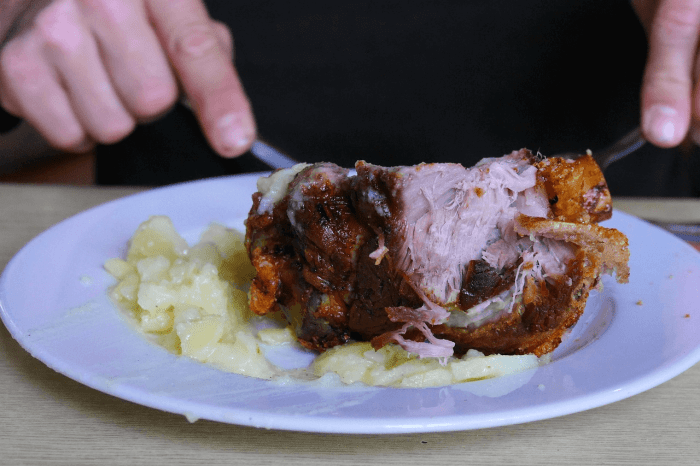Do jehovah witnesses eat pork – Do Jehovah’s Witnesses eat pork? This question delves into the fascinating intersection of religion, health, and culture, offering a unique perspective on the diverse beliefs and practices surrounding pork consumption.
Jehovah’s Witnesses abstain from eating pork, citing biblical passages that prohibit the consumption of “unclean” animals. However, the interpretation of these passages and the underlying reasons for the prohibition remain subjects of debate.
Biblical Basis

Jehovah’s Witnesses cite several biblical passages as the basis for their prohibition against eating pork. These include Leviticus 11:7-8, Deuteronomy 14:8, and Isaiah 65:2-4.
These passages form part of the Old Testament dietary laws, which were given to the Israelites by God through Moses. These laws were intended to promote cleanliness and holiness among the people of Israel, and they included restrictions on eating certain animals, such as pork, shellfish, and reptiles.
Jehovah’s Witnesses abstain from eating pork due to religious beliefs. However, the eastern region of Zeta Phi Beta, a prominent sorority, has taken a different approach. Zeta Phi Beta Eastern Region encourages its members to embrace diversity and inclusivity, which includes respecting different dietary choices.
Despite the varying practices, the common thread is a commitment to respecting personal beliefs and fostering a harmonious community.
Historical and Cultural Context
The prohibition against eating pork is rooted in the ancient Near Eastern belief that pigs were unclean animals. This belief was based on the fact that pigs are scavengers and often eat feces and other waste products. In addition, pigs were often associated with disease and illness.
The Israelites were forbidden from eating pork because they were considered to be a holy people, and they were expected to maintain a high level of cleanliness and purity. Eating pork was seen as a violation of this holiness, and it was punishable by death.
Arguments Presented by Jehovah’s Witnesses
Jehovah’s Witnesses argue that the prohibition against eating pork is still in effect today, even though the Old Testament dietary laws have been abolished. They believe that the principles behind these laws are still valid, and that they apply to all Christians.
Jehovah’s Witnesses also point to the fact that pork is still considered to be an unclean animal in many cultures around the world. They believe that this is a sign that God’s prohibition against eating pork is still relevant today.
Health Considerations

Consuming pork offers both health benefits and potential risks. Understanding these factors is crucial for making informed dietary choices.
Pork is a rich source of essential nutrients like protein, vitamins, and minerals. However, it also contains saturated fat and cholesterol, which can pose health concerns if consumed excessively.
Nutritional Value, Do jehovah witnesses eat pork
Pork is a nutrient-dense meat, providing a wide range of vitamins and minerals. It is particularly rich in:
- Protein: Essential for building and repairing tissues
- Iron: Necessary for red blood cell production
- Zinc: Supports immune function and wound healing
- Vitamin B12: Essential for nerve function and DNA synthesis
Health Benefits
- Lean cuts of pork can be a good source of protein without excessive fat intake.
- Pork contains selenium, an antioxidant that protects cells from damage.
- Consuming pork in moderation may support muscle growth and repair.
Health Risks
- Excessive consumption of saturated fat and cholesterol from pork can increase the risk of cardiovascular disease.
- Pork can be a source of foodborne pathogens, such as Salmonella and Trichinella, if not handled and cooked properly.
- Pork may contain nitrates, which have been linked to an increased risk of certain types of cancer.
Overall, consuming pork in moderation as part of a balanced diet can provide essential nutrients without significantly increasing health risks. However, individuals with specific dietary restrictions or health conditions should consult with a healthcare professional for personalized advice.
Cultural and Societal Impact

The consumption of pork is influenced by a complex interplay of cultural, societal, and religious factors. In some regions, pork is a staple food, while in others, it is taboo or considered unclean.
In many Western cultures, pork is widely consumed and is often seen as a symbol of abundance and celebration. In contrast, in some Muslim-majority countries, pork is forbidden due to religious beliefs that deem it impure. Similarly, in some Hindu communities, pork is considered taboo due to the belief that pigs are unclean animals.
Role of Religion
Religion plays a significant role in shaping attitudes towards pork consumption. In Islam, the consumption of pork is strictly prohibited, as it is considered haram (forbidden). This prohibition is based on passages in the Quran that state that pork is unclean and its consumption is sinful.
In Judaism, pork is also considered unclean and is forbidden according to the kosher dietary laws. These laws are based on the belief that certain animals, including pigs, are not fit for human consumption.
Role of Tradition
Tradition also plays a role in shaping attitudes towards pork consumption. In some cultures, the consumption of pork is deeply ingrained in traditional practices and is passed down through generations. For example, in many European countries, pork is a central part of traditional dishes and is often served during festivals and celebrations.
In other cultures, however, the consumption of pork is avoided due to traditional beliefs that it is unclean or harmful. For example, in some parts of Southeast Asia, pork is considered to be a “hot” food that can cause health problems.
Role of Personal Preferences
Personal preferences also play a role in determining whether or not people consume pork. Some individuals may choose to avoid pork due to ethical concerns about the treatment of pigs in factory farms. Others may avoid pork due to health concerns, such as the belief that it is high in fat and cholesterol.
The decision to consume pork or not is ultimately a personal one, influenced by a combination of cultural, societal, and religious factors. Jehovah’s Witnesses’ prohibition against eating pork is one example of how religious beliefs can shape dietary choices.
Comparison with Other Religions: Do Jehovah Witnesses Eat Pork

Jehovah’s Witnesses’ prohibition against pork consumption differs from the practices of many other major religions.
Judaism
Judaism prohibits pork consumption based on the Levitical law found in the Torah, which declares pigs to be “unclean” (Leviticus 11:7-8). This prohibition is deeply rooted in Jewish tradition and is observed by both Orthodox and Reform Jews.
Islam
Islam also prohibits pork consumption, as stated in the Quran (2:173). Muslims believe that pigs are “impure” and that eating their meat is a sin. This prohibition is widely observed by Muslims worldwide.
Christianity
Unlike Judaism and Islam, Christianity does not have a universal prohibition against pork consumption. The New Testament does not explicitly forbid the eating of pork, and many Christian denominations allow their members to consume it. However, some Christian groups, such as the Seventh-day Adventists, choose to abstain from pork based on their interpretation of certain biblical passages.
Implications for Interfaith Dialogue
The differing beliefs and practices regarding pork consumption can have implications for interfaith dialogue and understanding. It is important for members of different religions to be aware of and respect each other’s dietary restrictions. By engaging in open and respectful dialogue, people of different faiths can foster mutual understanding and promote harmonious relationships.
Question Bank
Why do Jehovah’s Witnesses not eat pork?
Jehovah’s Witnesses believe that pork is an “unclean” animal, as stated in Leviticus 11:7.
Are there any health benefits to abstaining from pork?
Pork is a nutritious meat, but it can contain parasites and bacteria if not cooked properly. Abstaining from pork may reduce the risk of foodborne illnesses.
Do all religions prohibit pork consumption?
No, pork consumption is permitted in many religions, including Christianity, Islam, and Hinduism.